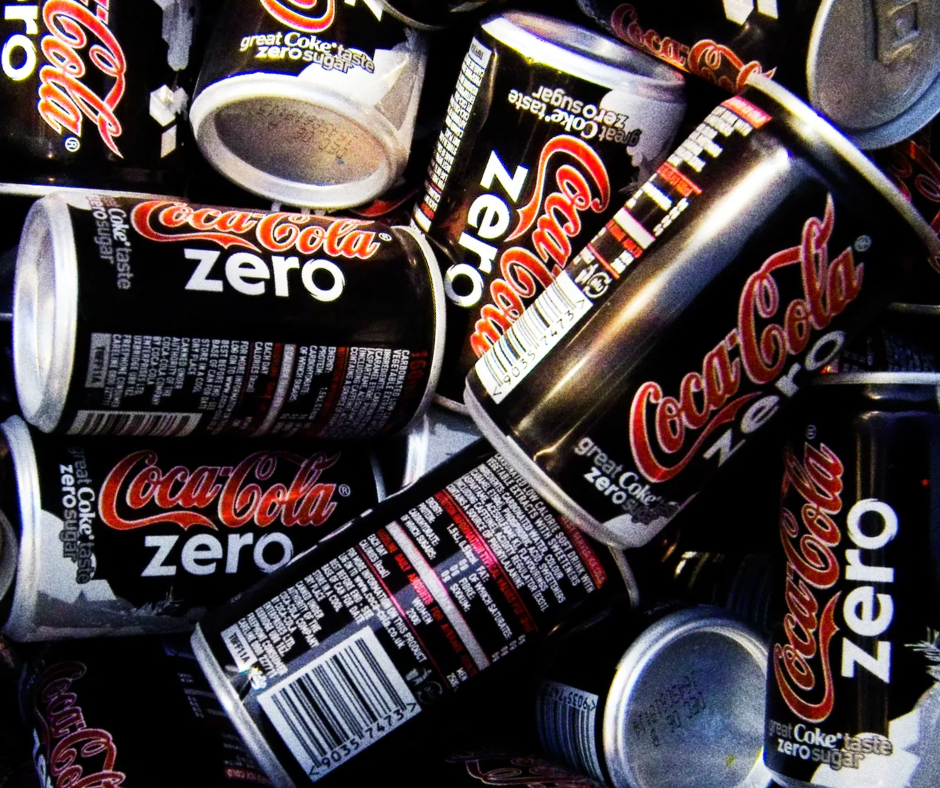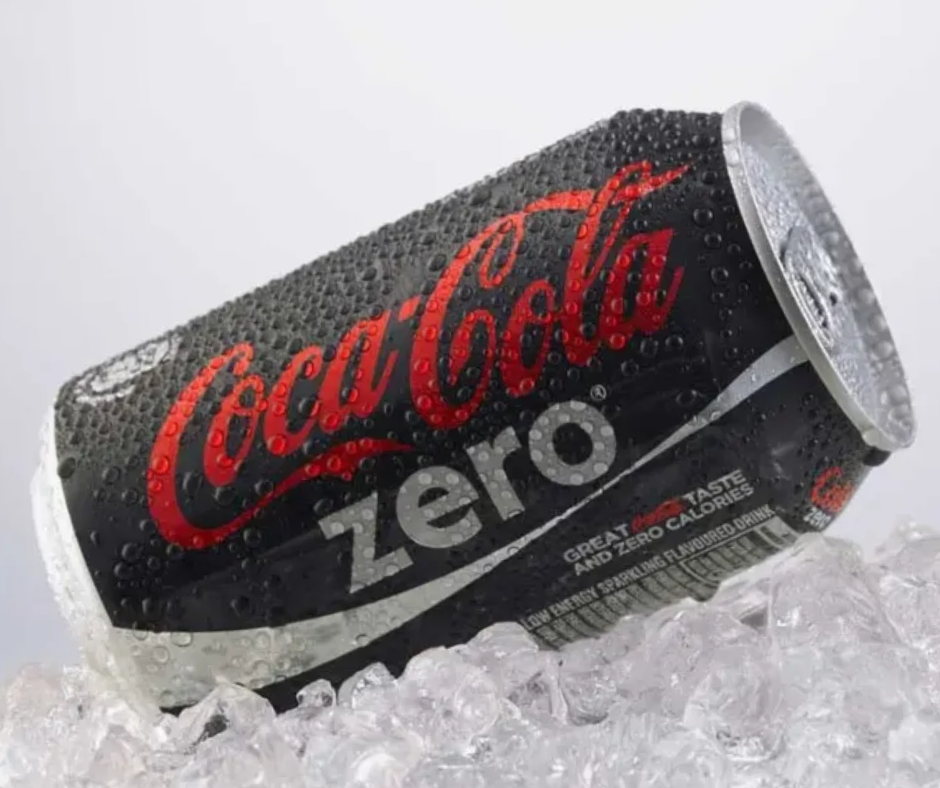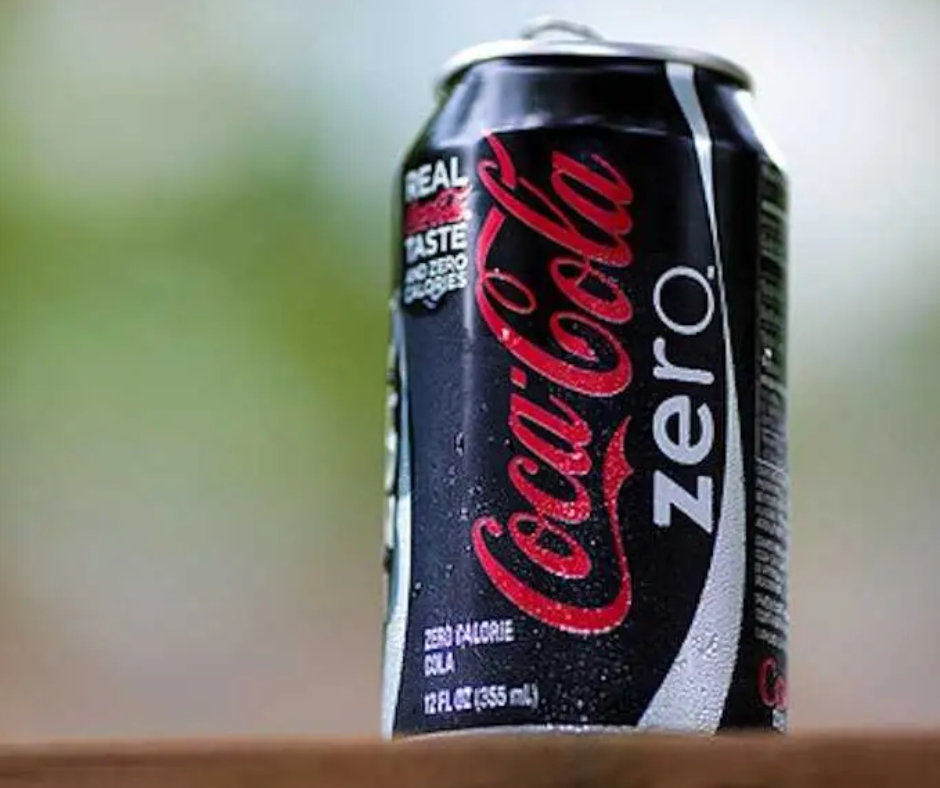Introduction
Coke Zero has become popular for soda lovers who want to enjoy their favorite beverage without the added calories. However, it’s important to understand the caffeine content in Coke Zero, especially for those who have health concerns or are sensitive to caffeine. So, Does Coke Zero Have Caffeine In It? This blog will help you explore the caffeine in Coke Zero.
Background Of Coke Zero
Coke Zero was introduced in 2005 as a sugar-free alternative to regular Coca-Cola. It quickly gained popularity among consumers who wanted a healthier option with the same great taste. Unlike Diet Coke, which uses a different recipe, Coke Zero is made to taste like regular Coca-Cola. It has become a staple on supermarket shelves and in vending machines worldwide.
Importance Of Understanding Caffeine Content In Beverages
Caffeine is a stimulant often found in beverages like soda, tea, and coffee. While some people can handle caffeine without any issues, others may experience negative side effects like jitters, sleeplessness, and increased heart rate. For these individuals, it’s important to understand exactly how much caffeine is in their drinks.
Knowing the caffeine content can also be important for anyone trying to manage their caffeine intake or who has health concerns that may be exacerbated by caffeine. For example, pregnant women are often advised to limit their caffeine intake to avoid negative effects on their developing baby.
When it comes to Coke Zero, the good news is that it contains only about 34 mg of caffeine per 12 oz can. According to the FDA, moderate caffeine intake of up to 400 mg daily, or about four cups of coffee, is not associated with adverse health effects in most adults. This means that a can of Coke Zero falls well within safe limits for most people.
In conclusion, understanding the caffeine content in beverages like Coke Zero is important for health and enjoyment. For those concerned about their caffeine intake or sensitivity, it’s helpful to know that a can of Coke Zero contains a moderate amount of caffeine that is considered safe for most adults.
What Is Coke Zero?
Coke Zero is a sugar-free soft drink introduced by Coca-Cola in 2005. The beverage is marketed as having a taste similar to regular Coca-Cola but with zero calories and no added sugar. Coke Zero is made with a unique recipe that uses artificial sweeteners to replicate the flavor of regular soda.
Coke Zero’s Formulation And Taste
Coke Zero is formulated with artificial sweeteners, including aspartame and acesulfame potassium, which the FDA approves for beverage use. The recipe is designed to replicate the taste of regular Coca-Cola, and many consumers enjoy it as a healthier option that does not compromise on flavor.
While Coke Zero has a similar taste to regular Coca-Cola, it has been noted that its taste is not identical. Some consumers have reported a slightly different aftertaste or mouthfeel than regular soda. However, this difference is often not noticeable to the average consumer.
Coke Zero’s Target Audience
Coke Zero was created to appeal to consumers who want a healthier alternative to regular soda without sacrificing taste. Its target audience includes individuals who are concerned about their caloric intake, those who have diabetes or other health conditions that require them to monitor their sugar intake, and those who prefer the taste of sugar-free beverages.
Coke Zero has become popular for consumers who want to enjoy a refreshing soda without consuming added sugar or excess calories. For those sensitive to caffeine, it’s helpful to know that a Coke Zero contains a moderate amount of caffeine that is considered safe for most adults.
Why The Buzz About Caffeine
While Coke Zero is marketed as a sugar-free alternative to regular soda, it does contain some caffeine, which gives consumers an added boost. Caffeine is a natural stimulant in coffee, tea, and soda beverages.
Caffeine’s Effect On The Body
When consumed in moderation, caffeine has been shown to improve mental focus and concentration, boost metabolism, and even elevate mood. However, excessive caffeine intake can lead to negative side effects such as anxiety, restlessness, and sleeping difficulties. Individuals need to monitor their consumption and limit it to a safe level.
Recommended Daily Caffeine Intake
The FDA recommends that healthy adults consume no more than 400 milligrams of caffeine daily, equivalent to about four cups of coffee. For pregnant women, the recommended limit is reduced to 200 milligrams per day.
A 12-ounce can of Coke Zero contains approximately 34 milligrams of caffeine. This moderate amount of caffeine is considered safe for most adults when consumed in moderation.
In conclusion, while Coke Zero may be marketed as a sugar-free alternative to regular soda, it still contains caffeine. However, the amount of caffeine in a can of Coke Zero is considered safe for most adults when consumed in moderation. As with all beverages and foods, consuming caffeine in both safe and moderate amounts is important.
Does Coke Zero Have Caffeine In It: Coke Zero Caffeine Content
Coke Zero is a sugar-free soda that also contains caffeine. Caffeine is a natural stimulant that can boost the consumer’s energy. But Does Coke Zero Have Caffeine In It? Coke Zero provides moderate caffeine, which is safe for most adults when consumed in moderation.
Coke Zero Classic Caffeine Content
A 12-ounce can of Coke Zero Classic contains approximately 34 milligrams of caffeine. This amount is relatively low compared to caffeinated beverages such as coffee or energy drinks.
Coke Zero Sugar Caffeine Content
Coke Zero Sugar (formerly known as Coke Zero) also contains 34 milligrams of caffeine per 12-ounce can. Despite the name change, the caffeine content remained the same.
Moderate caffeine consumption has been shown to improve mental focus and concentration, boost metabolism, and even elevate mood. However, excessive caffeine intake can lead to negative side effects such as anxiety, restlessness, and sleeping difficulties.
The FDA recommends that adults consume no more than 400 milligrams of caffeine daily and that pregnant women limit their intake to 200 milligrams daily. It’s important to monitor your caffeine consumption and limit it to a safe level.
In conclusion, Coke Zero does contain caffeine, but the amount is considered safe for most adults when consumed in moderation. As with all beverages and foods, consuming caffeine in both safe and moderate amounts is important.
Coke Zero Vs. Other Beverages
Comparison Of Coke Zero Caffeine Content To Other Sodas And Energy Drinks
Coke Zero’s caffeine content is lower than that of other caffeinated beverages. For example, a 12-ounce can of Coca-Cola Classic contains approximately 34 milligrams of caffeine, just like Coke Zero. However, other popular sodas, such as Mountain Dew (54mg) and Pepsi (38mg), contain higher amounts of caffeine. On the other hand, energy drinks like Monster and Red Bull contain a much higher amount of caffeine, ranging from 80mg to 240mg per serving.
Health Implications
Moderate consumption of Coke Zero is generally considered safe for most people. The caffeine content in a Coke Zero can is safe for healthy adults, but monitoring overall caffeine intake throughout the day is still important.
However, excessive intake of caffeinated beverages can have negative health implications such as increased heart rate, anxiety, and restlessness. People who are sensitive to caffeine should avoid consuming caffeinated products altogether.
In conclusion, consuming all beverages, including Coke Zero, in moderation is crucial. While Coke Zero’s caffeine content is relatively low compared to other caffeinated drinks, monitoring overall caffeine intake is still essential. People with caffeine sensitivities should be cautious when consuming any caffeinated products. As always, it’s important to prioritize a well-balanced and nutritious diet for optimal health.
Labeling Regulations
FDA Labeling Requirements
In 1997, the Center for Science in the Public Interest petitioned the U.S. Food and Drug Administration (FDA) requesting quantitative labeling of caffeine content in consumable products. This was followed by a letter from Griffith et al. in 2008, urging for a review of the health effects of caffeine. As a result, the FDA issued guidelines requiring companies to declare the total amount of caffeine in their products on the label.
Coke Zero’s Compliance To Regulations
In 2013, Monster Energy became the first energy drink company to start including their products’ caffeine content on the label. Other beverage companies, such as Coca-Cola’s Coke Zero, followed this initiative and currently list their caffeine content on their labels to comply with FDA regulations.
Compared to other caffeinated beverages, Coke Zero’s caffeine content is relatively low, at 34 milligrams per 12-ounce can, similar to that of Coca-Cola Classic. However, energy drinks such as Monster and Red Bull contain a much higher amount of caffeine, ranging from 80mg to 240mg per serving.
Moderate consumption of Coke Zero is generally considered safe for most healthy adults. Nevertheless, excessive intake of caffeinated beverages can lead to negative health implications such as increased heart rate, anxiety, and restlessness. Individuals who are sensitive to caffeine should avoid consuming caffeinated products altogether.
Therefore, monitoring overall caffeine intake and consuming all beverages in moderation, including Coke Zero, is crucial. People with caffeine sensitivities should be cautious when consuming any caffeinated products. As always, prioritizing a well-balanced and nutritious diet is vital for optimal health.
Consumer Feedback On Caffeine Content
Social Media Reactions To Coke Zero’s Caffeine Content
Social media platforms are abuzz with discussions and debates on the caffeine content of various beverages, including Coke Zero. Social media users have expressed mixed reactions to the caffeine content of this popular soda drink. Some consumers appreciate the low caffeine content, while others argue that it is still significant and could have detrimental effects.
Consumer Surveys On Caffeine
Consumer surveys on caffeine consumption habits reveal that over nine in ten Americans consume caffeine. Three in four consume caffeine at least once a day, and one in four consume it three or more times daily. The surveys also highlight concerns over the negative health effects of consuming too much caffeine.
Coke Zero has significantly less caffeine than other caffeinated beverages, such as energy drinks, but moderate intake is still recommended. The FDA’s labeling guidelines help consumers make informed decisions about their beverage choices and monitor their caffeine intake. Prioritizing a healthy and balanced diet is essential for optimal health.
Conclusion
Significance Of Knowing The Caffeine Content In Beverages
Now you should know the answer to ‘Does Coke Zero Have Caffeine In It?’. Knowing the caffeine content in beverages is essential, as excessive consumption can lead to adverse health effects such as anxiety, restlessness, and insomnia in some individuals. Conversely, moderate-level caffeine consumption can provide various benefits, such as increased alertness and improved cognitive function.
The FDA’s guidelines recommend that adult consumers not exceed 400mg of caffeine per day (about four cups of coffee), pregnant women should limit their daily intake to 200mg, and children should limit their caffeine intake to avoid side effects.
Final Thoughts On Coke Zero’s Caffeine Quotient
Coke Zero’s moderate caffeine content (34 mg per 12-ounce serving) makes it a refreshing beverage choice. Its caffeine content is significantly lower than that of many caffeinated beverages, including energy drinks. The FDA’s labeling guidelines help consumers make informed decisions about their beverage choices and monitor their caffeine intake. However, moderation is still the key to a healthy and balanced diet. Coke Zero is an excellent option for those seeking a sugar-free soft drink with moderate caffeine.
FAQ: Does Coke Zero Have Caffeine In It? Unveiling the Content
Q: Does Coke Zero Have Caffeine In It?
A: Yes, it does.
Q: How much caffeine is in a can of Coke Zero?
A: A 12-ounce (355ml) can of Coke Zero contains approximately 34 milligrams of caffeine.
Q: Is the caffeine content in Coke Zero high or low?
A: It’s considered a moderate dose of caffeine.
Q: Will drinking one can of Coke Zero give you a significant caffeine buzz?
A: It depends on your caffeine tolerance level and sensitivity. However, the amount of caffeine in one can of Coke Zero is not considered a high dose.
Q: Is Coke Zero a good alternative for those who want to reduce their caffeine intake?
A: While Coke Zero contains some caffeine, it’s a good alternative for those who want to reduce their sugar and calorie intake from regular soda drinks.
Q: Can pregnant women or children drink Coke Zero?
A: Pregnant women should consult their doctors before consuming caffeinated beverages. Children should consume caffeine in moderation and with parental supervision.
Q: Does Coke Zero use natural or artificial caffeine?
A: Coca-Cola does not disclose the caffeine source in Coke Zero. However, most soda drinks use synthetic caffeine sources.
Q: What are the possible side effects of consuming too much caffeine from Coke Zero?
A: Possible side effects of consuming too much caffeine include insomnia, jitters, anxiety, palpitations, and high blood pressure. Consuming caffeine in moderation and with awareness of your tolerance level is essential.

Deb Carlson at Crosslake Coffee: Join Deb at Crosslake Coffee for a delightful blend of community, caffeine, and creativity. Discover the cozy ambiance and warm hospitality that make this local coffee shop a beloved gathering spot. From expertly crafted espresso drinks to mouthwatering pastries, Deb invites you to savor every sip and bite. Stay connected with the latest updates on specials, events, and live music performances by following Deb Carlson at Crosslake Coffee on social media. Embrace the vibrant online community and share your love for great coffee and good company with fellow enthusiasts. Don’t miss out on a moment of the Crosslake Coffee experience – connect with Deb on social media today.



